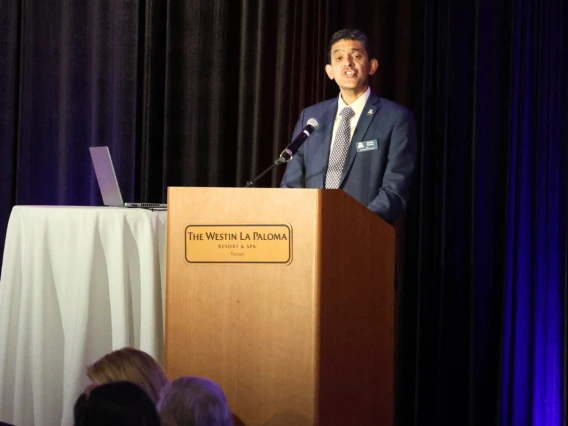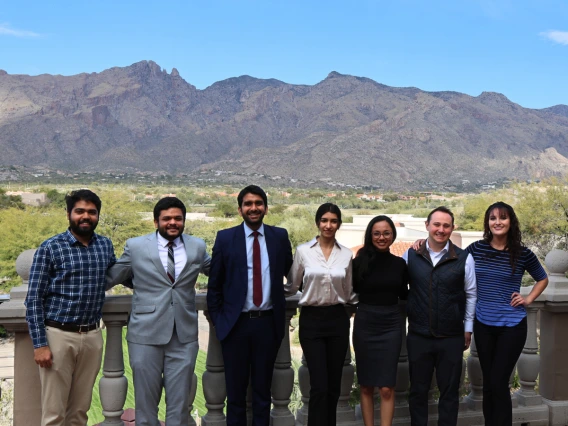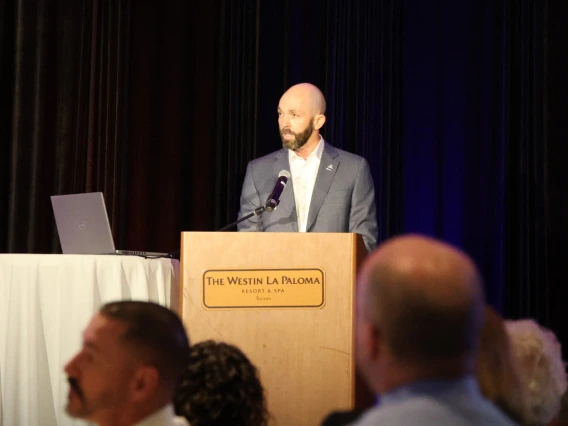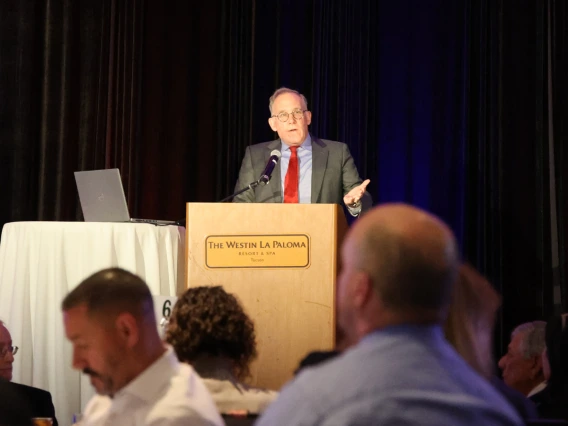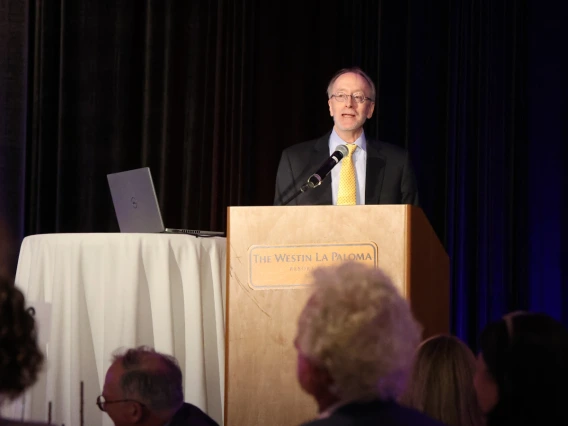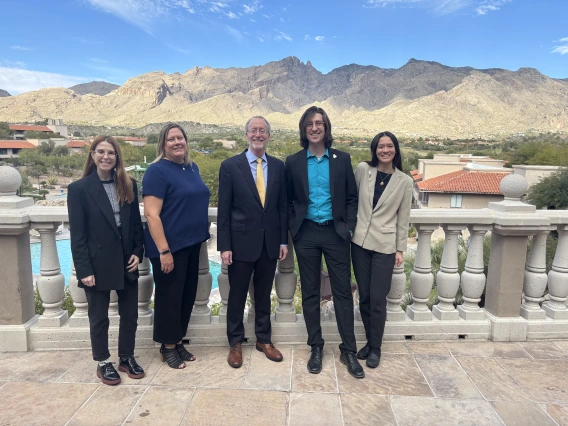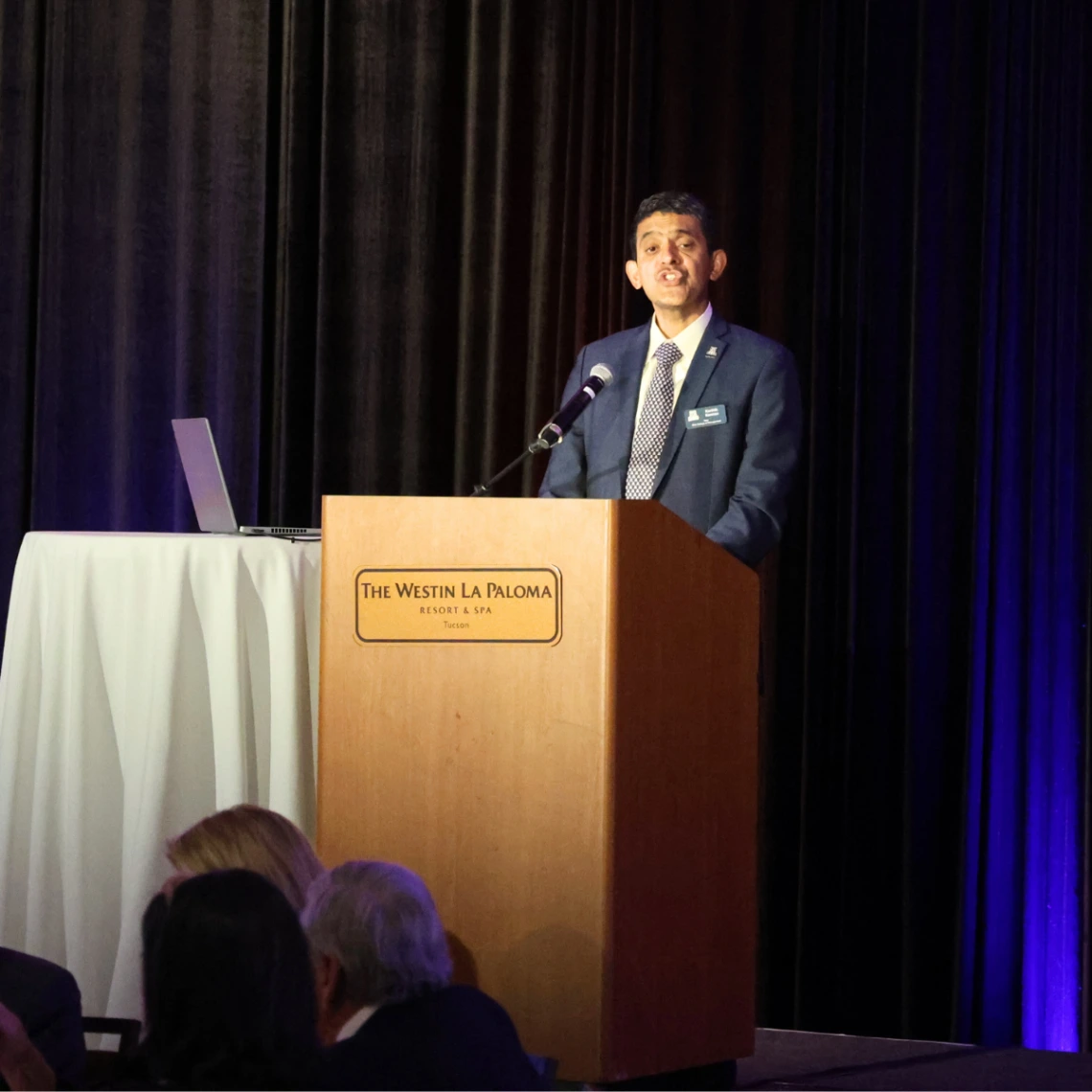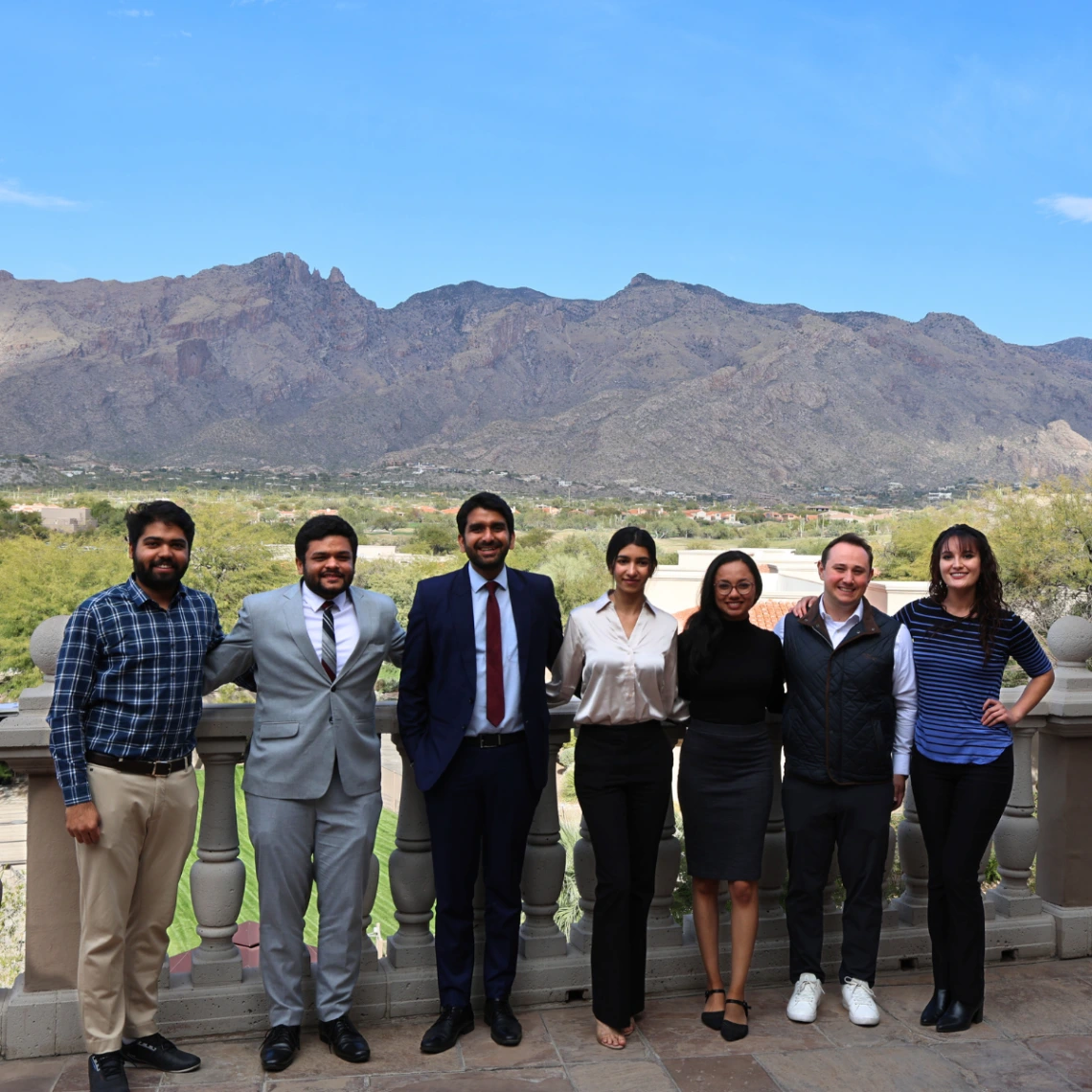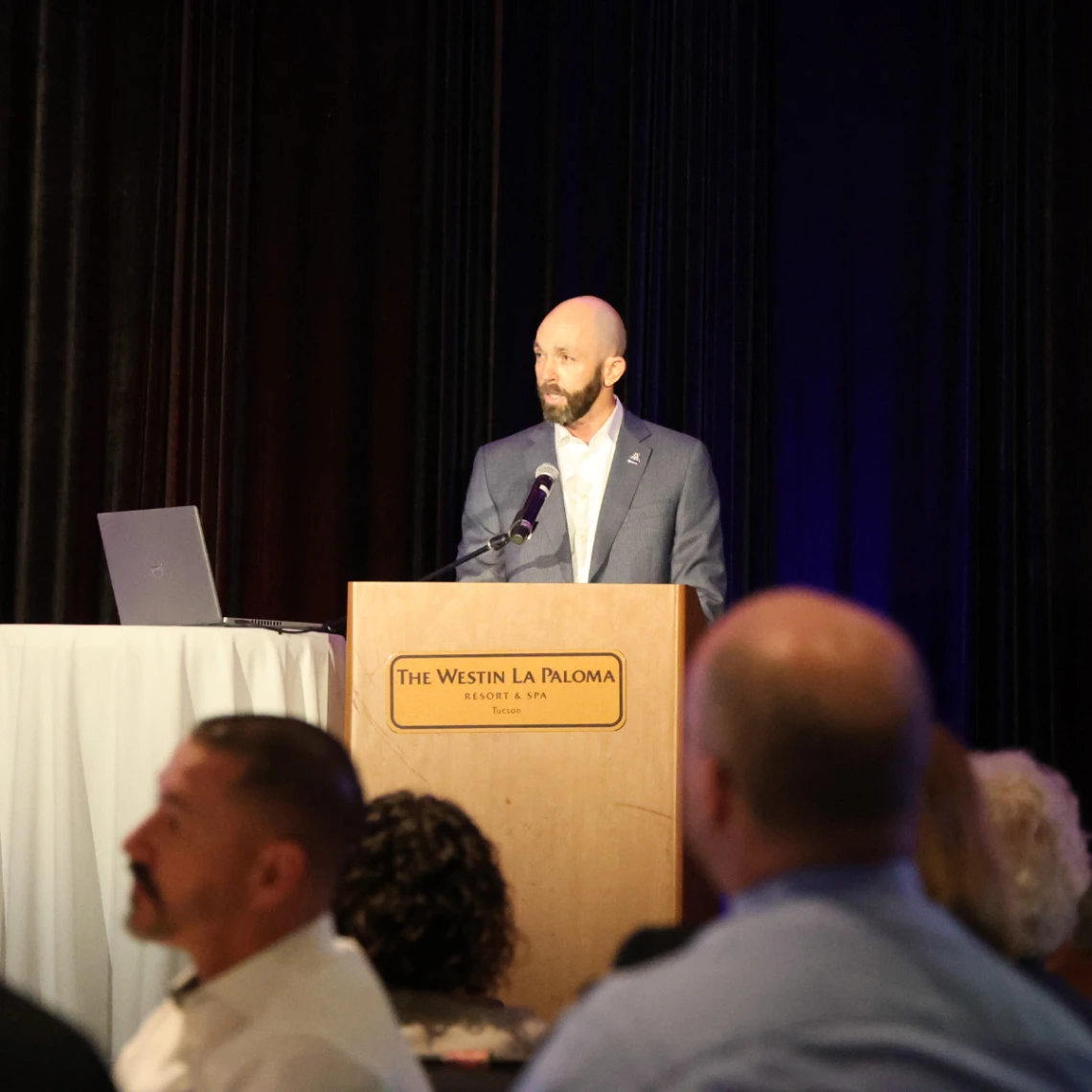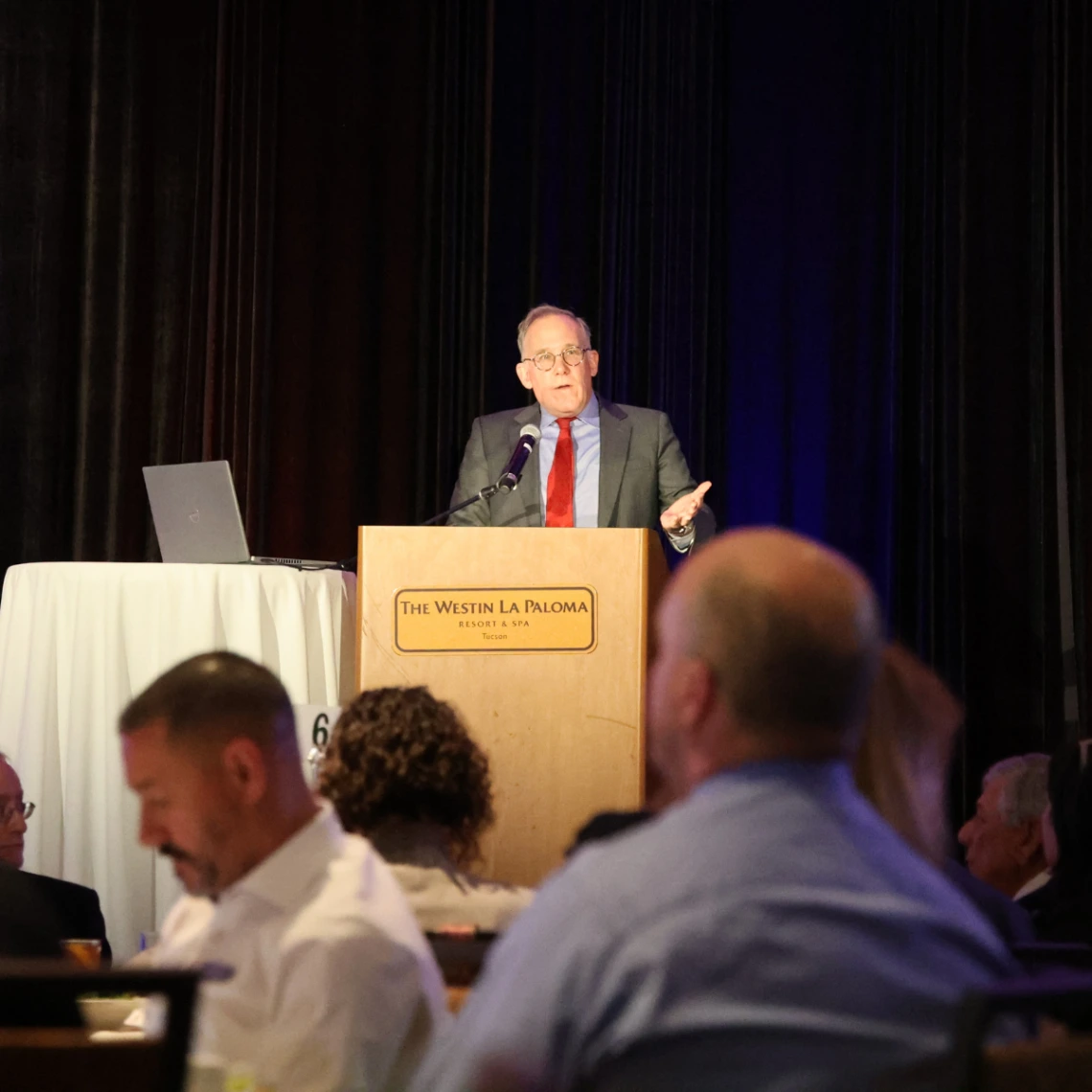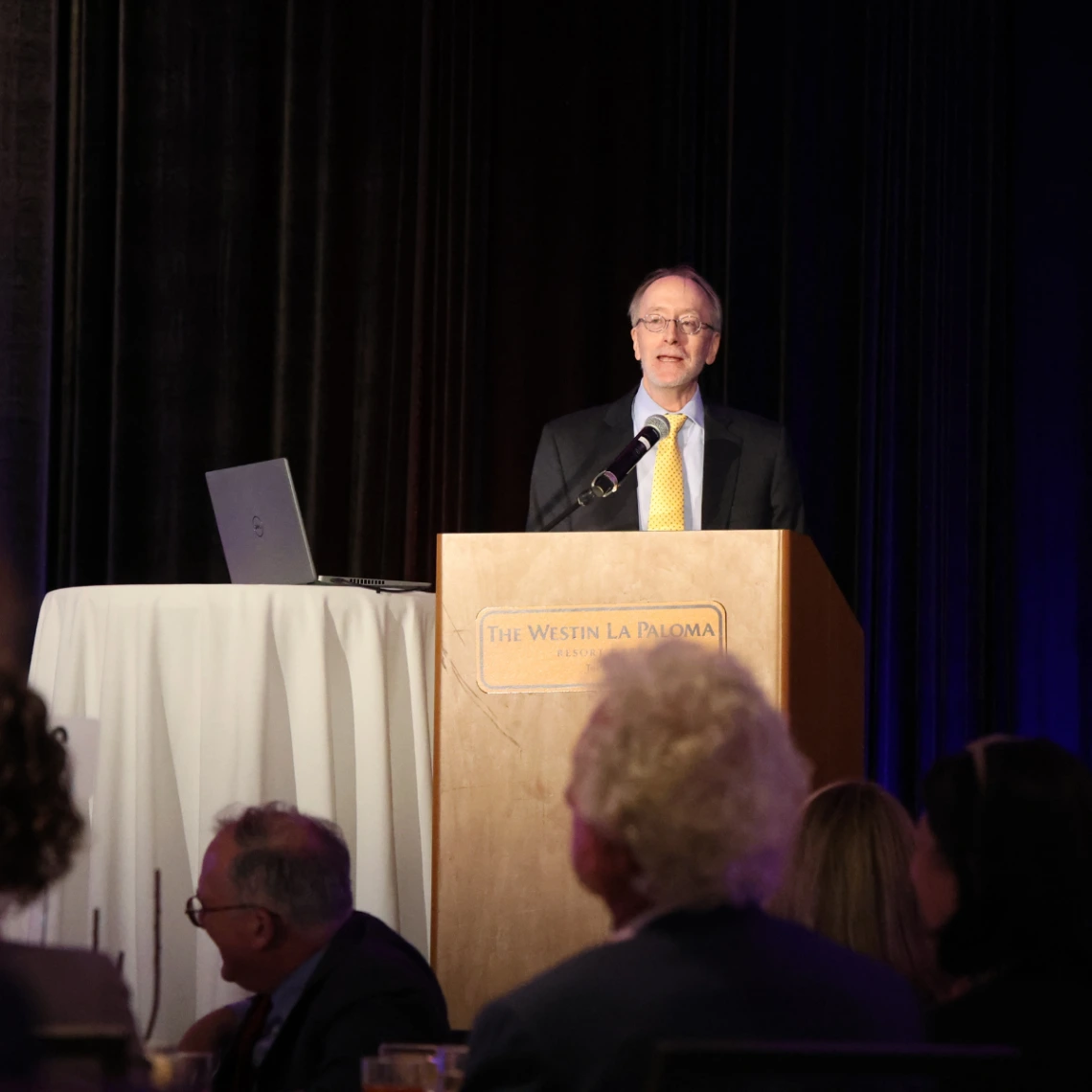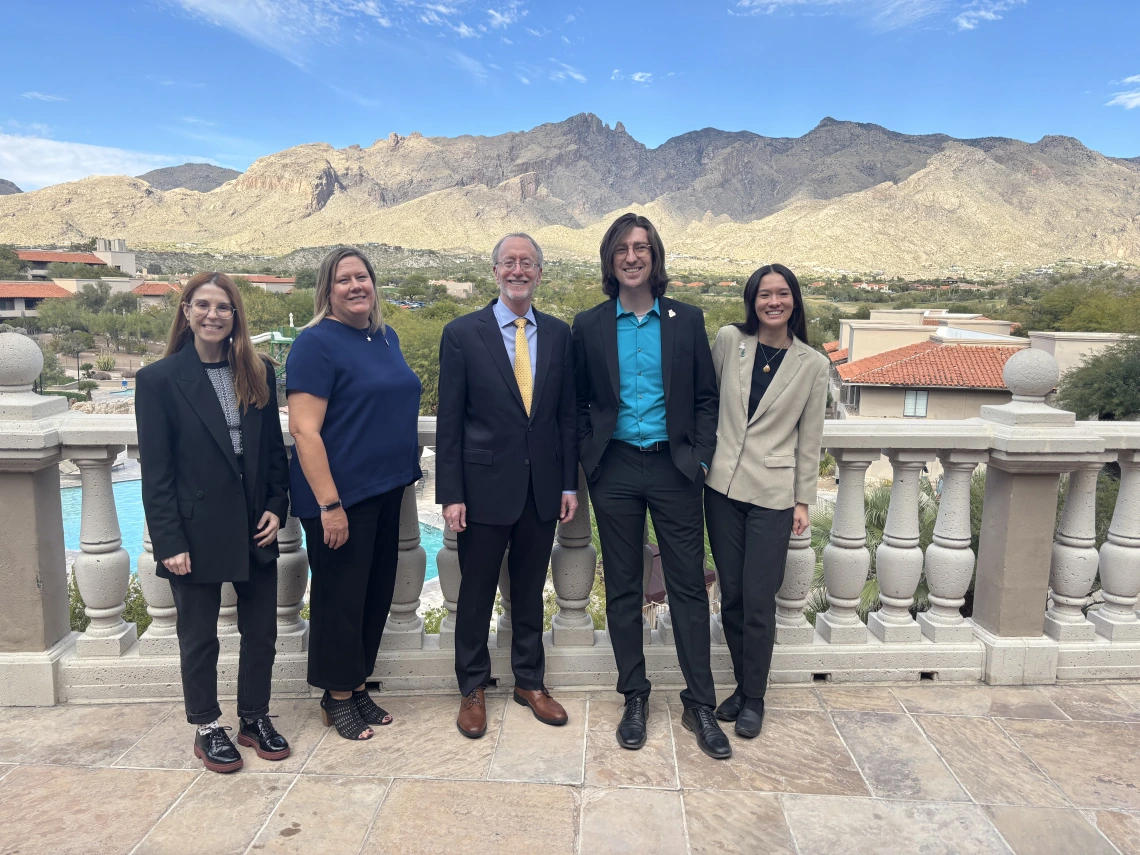Arizona’s Economic Outlook: Key Insights from Eller College’s Annual Luncheon
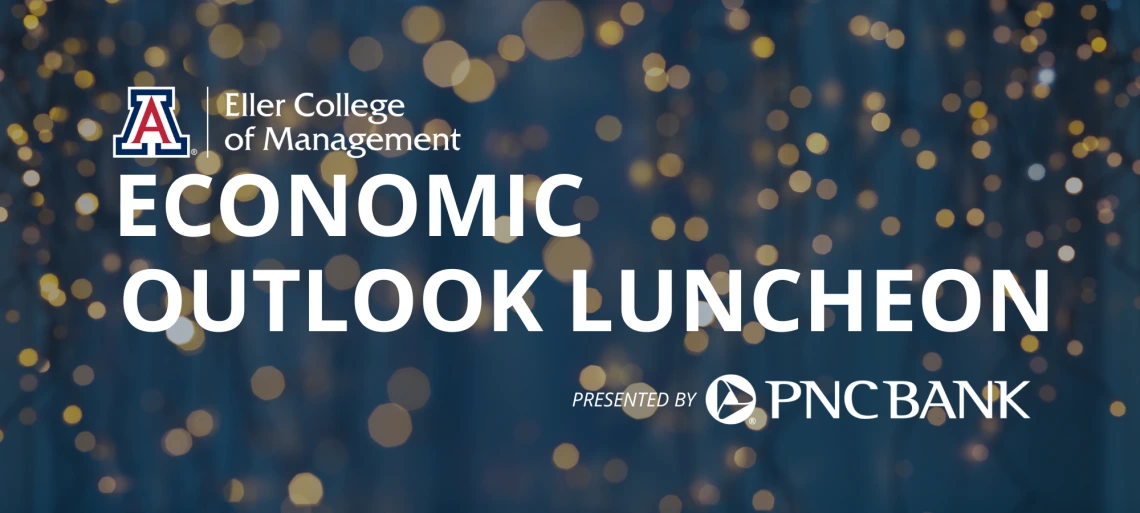
On December 12, the Eller College of Management Economic and Business Research Center (EBRC) hosted the annual Economic Outlook Luncheon, presented by PNC Bank at the Westin La Paloma Resort and Spa in Tucson. The event featured speakers George Hammond, director of the EBRC research professor, and Gus Faucher, chief economist at PNC Bank. Together, they shared valuable insights into the future of the global, state, and local economies.

Karthik Kannan, Gus Faucher, George Hammond
Key Takeaways: Arizona’s Economic Resilience
Despite ongoing challenges such as reduced housing affordability, high interest rates, and labor shortages, Arizona’s economy continues to show resilience. Job growth in the state is notably outpacing the national average, with Phoenix and Tucson seeing continued, albeit slower, economic progress.
Dr. Hammond’s analysis highlighted that:
- Job Growth: Arizona added 68,500 jobs year-to-date, a 2.2 percent increase over the previous year, compared to the national growth rate of 1.7 percent.
- Unemployment: The state’s unemployment rate remained below the U.S. average at 3.6 percent.
- Housing Market: While home prices are increasing at modest rates compared to the explosive growth of 2021-2022, Phoenix and Tucson prices remain elevated, driven largely by housing demand.
- Retail Sales: Retail and remote sales growth have slowed in 2024, reflecting a broader economic shift, with remote sellers contributing most to the retail sector’s stability.
A Look Ahead
The forecast predicts that Arizona will continue to grow faster than the U.S., assuming the national economy avoids a recession. Key factors driving the outlook include:
- Sustained Job Gains: Growth in education, health services, and professional business services will lead employment opportunities in the coming decade.
- Income Growth: Personal income rose strongly in 2023 but is expected to slow slightly to 6.1 percent in 2024, alongside moderating wage gains.
- Population Trends: Migration will remain a critical factor as Arizona's natural population increase slows.
While uncertainties remain—such as potential policy changes after elections and global economic risks—Arizona’s diverse economy positions it to weather challenges and sustain growth into the next decade.



